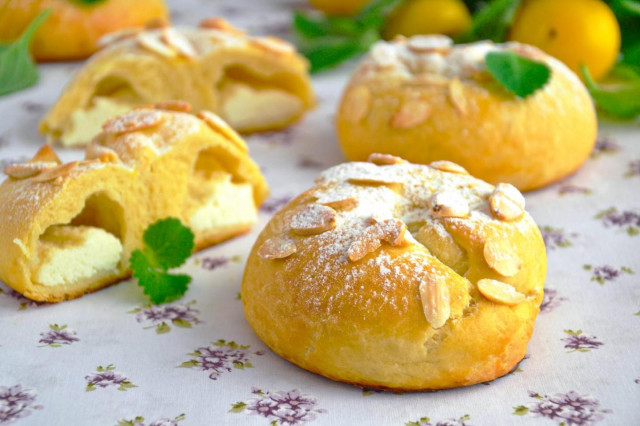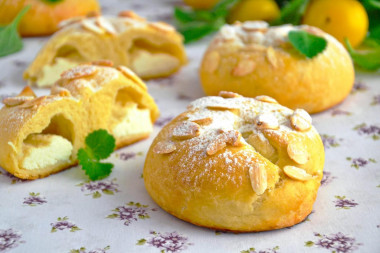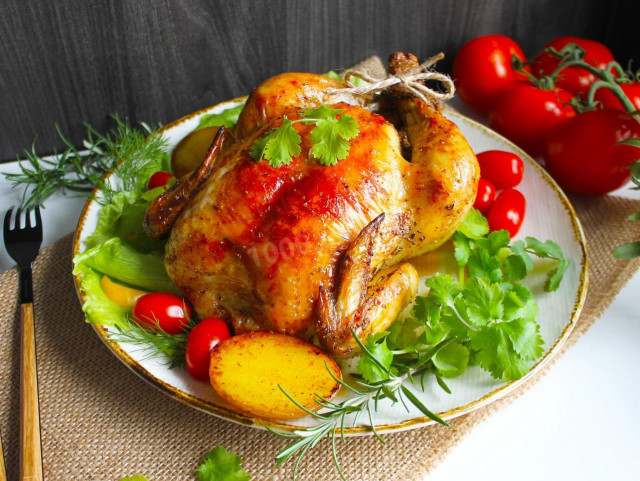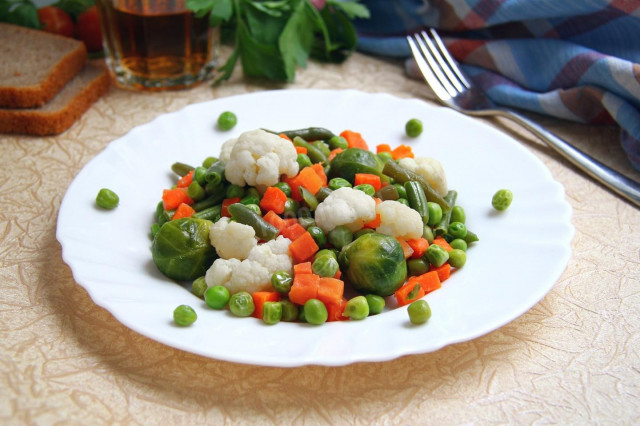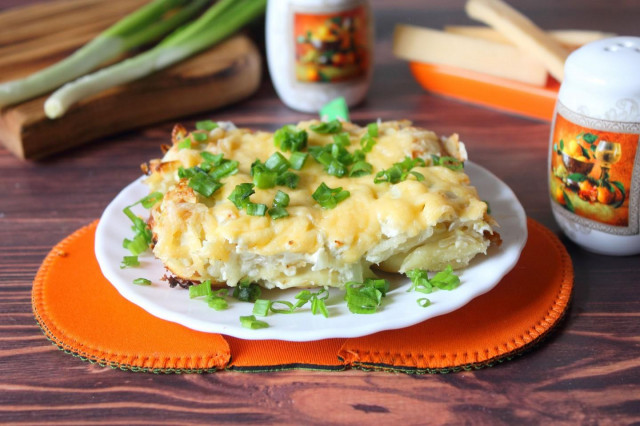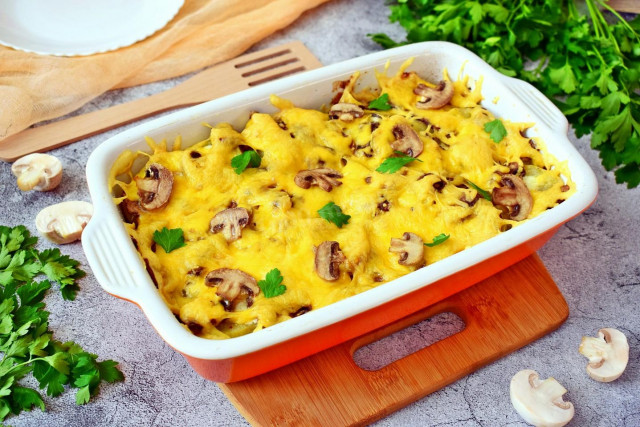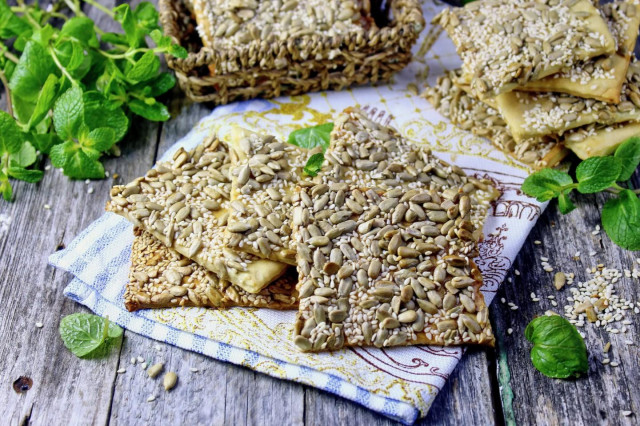Composition / ingredients
Step-by-step cooking
Step 1:
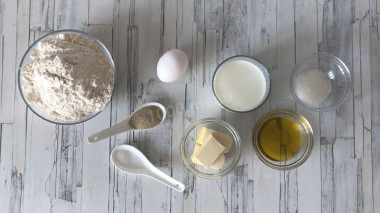
How to make buns with cottage cheese? Prepare the ingredients for the dough. All of them, except milk, should be the same temperature, preferably room temperature. You can take any fat content of milk. Flour - of the highest grade. Vegetable oil is also any, I have sunflower. Wash the eggs and dry them with napkins. Heat the milk to a warm state.
Step 2:
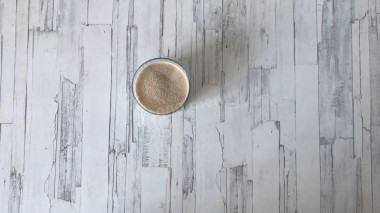
In a separate bowl, mix the dry yeast, sugar, and warm milk. Leave to come up for about 10 minutes.
Step 3:

During this time, the sourdough should have an airy yeast cap. This indicates the activity of yeast. If you didn't get such a cap, replace the yeast.
Step 4:
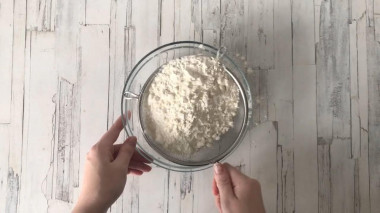
Sift wheat flour through a fine sieve into a deep bowl. Please note that you may take more or less flour than I do. Focus on the consistency of the dough. It should eventually be soft and elastic.
Step 5:
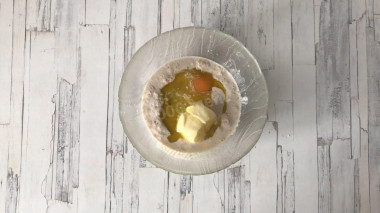
Pour the sourdough into a deep bowl. Add raw egg, soft butter, vegetable oil and salt to the sourdough. Mix everything well.
Step 6:
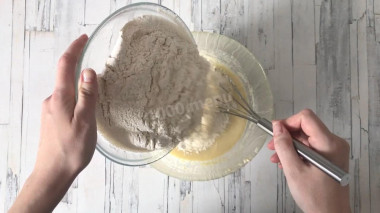
Start adding sifted flour to the dough in small portions. Knead a soft elastic dough. When it is difficult to mix it with a spoon, knead with your hands, lightly greased with vegetable oil.
Step 7:
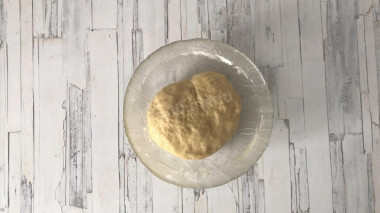
Cover the dough in a bowl with a towel and leave it to rise for about 1 hour.
Step 8:
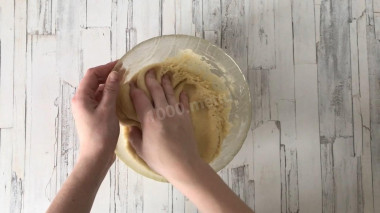
After an hour, knead the dough with your hands and leave it under a towel for another 1 hour.
Step 9:
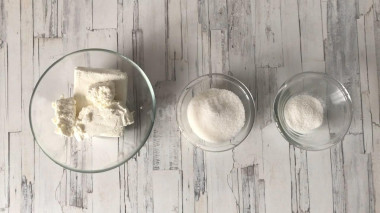
Prepare the products for the filling. Cottage cheese can take any fat content, the main thing is that it is not too crumbly. You can replace sugar with a sweetener that is not afraid of heat treatment. For example, sucralose.
Step 10:

In a separate bowl, combine the cottage cheese with sugar and vanilla sugar. Stir until smooth.
Step 11:
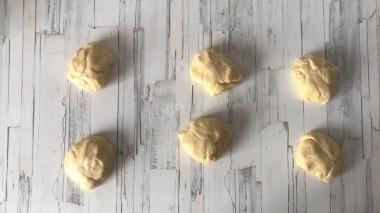
Divide the dough that has come up by this time into 6-8 equal pieces.
Step 12:
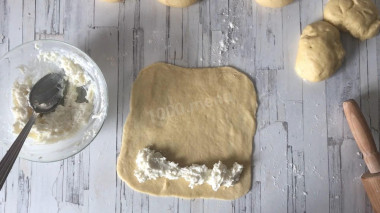
Roll out each piece of dough into a rectangle. Roll out not very thinly so that the dough does not break during baking and the filling does not leak out. Place the curd filling along the long edge of the dough and roll the dough into a roll.
Step 13:
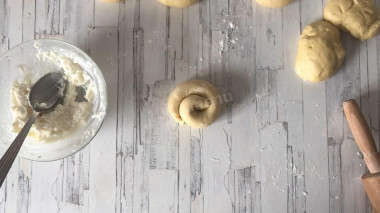
Twist the resulting rolls with a snail. Form the rest of the buns in the same way.
Step 14:
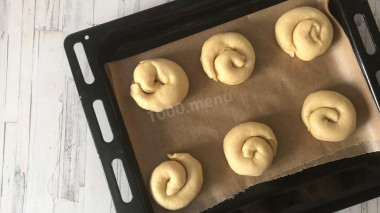
Place the cottage cheese buns on a parchment-lined baking sheet and leave for about 25-30 minutes for proofing.
Step 15:
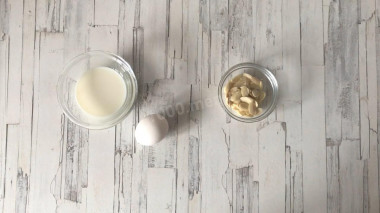
Prepare the products for greasing the buns. Instead of almond petals, you can use any other ground nuts to your taste. Or remove them altogether.
Step 16:
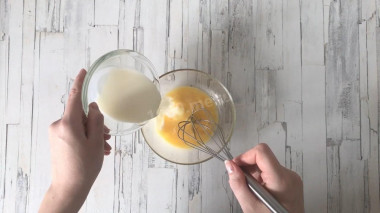
Beat the raw egg in a bowl with milk until smooth. Beat with a whisk or fork.
Step 17:
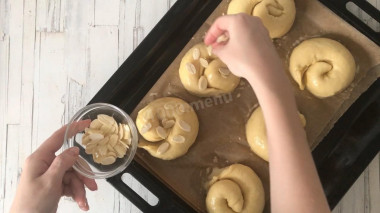
Brush the surface of the buns with egg whipped with milk and sprinkle with almond petals. Use a brush to lubricate.
Step 18:
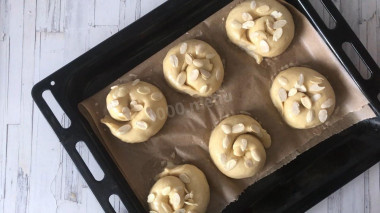
Bake the yeast dough buns for about 25 minutes at 180 °C. Determine the exact time and temperature of baking according to your oven.
Step 19:
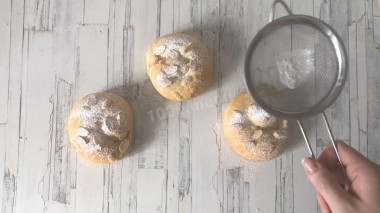
Sprinkle the finished buns with powdered sugar. Enjoy your meal!
The liquid in which yeast is bred should be pleasant to the touch, no higher than 40 degrees. Why is this important? In a warm environment, yeast is well activated, in a hot one it will die, and in a cold one it simply will not work. To avoid unpleasant surprises, check the yeast before mixing with the rest of the ingredients. Pour a little warm milk into a bowl, stir in the yeast. Cover the bowl with a kitchen towel and put it in a warm place without drafts for 10-15 minutes. During this time, a foam yeast cap should appear on the surface of the sponge. If this did not happen, then the fermentation process has not started (the yeast is overdue or spoiled). In this case, it is worth taking other yeast, otherwise baking will not work.
Be prepared for the fact that you may need more or less flour than indicated in the recipe. Focus not on the amount of flour, but on the desired consistency of the dough. To avoid mistakes, read about flour and its properties!
Keep in mind that everyone's ovens are different. The temperature and cooking time may differ from those specified in the recipe. To make any baked dish successful, use useful information about the features of ovens !
Caloric content of the products possible in the composition of the dish
- Whole cow's milk - 68 kcal/100g
- Milk 3.5% fat content - 64 kcal/100g
- Milk 3.2% fat content - 60 kcal/100g
- Milk 1.5% fat content - 47 kcal/100g
- Concentrated milk 7.5% fat content - 140 kcal/100g
- Milk 2.5% fat content - 54 kcal/100g
- Chicken egg - 157 kcal/100g
- Egg white - 45 kcal/100g
- Egg powder - 542 kcal/100g
- Egg yolk - 352 kcal/100g
- Ostrich egg - 118 kcal/100g
- Cottage cheese of 40% fat content - 466 kcal/100g
- Cottage cheese of 20% fat content - 233 kcal/100g
- Cottage cheese of 18% fat content - 226 kcal/100g
- Cottage cheese of 10% fat content - 156 kcal/100g
- Low-fat cottage cheese - 75 kcal/100g
- Cottage cheese with sour cream - 260 kcal/100g
- Fruit cottage cheese - 147 kcal/100g
- Soft dietary cottage cheese - 170 kcal/100g
- Cottage cheese "vitalinia" - 64 kcal/100g
- Cottage cheese "morning" ( "danone") without sugar - 91 kcal/100g
- Cottage cheese - 156 kcal/100g
- Whole durum wheat flour fortified - 333 kcal/100g
- Whole durum wheat flour, universal - 364 kcal/100g
- Flour krupchatka - 348 kcal/100g
- Flour - 325 kcal/100g
- Granulated sugar - 398 kcal/100g
- Sugar - 398 kcal/100g
- Butter 82% - 734 kcal/100g
- Amateur unsalted butter - 709 kcal/100g
- Unsalted peasant butter - 661 kcal/100g
- Peasant salted butter - 652 kcal/100g
- Melted butter - 869 kcal/100g
- Vegetable oil - 873 kcal/100g
- Salt - 0 kcal/100g
- Powdered sugar - 374 kcal/100g
- Vanilla sugar - 379 kcal/100g
- Almond petals - 650 kcal/100g
- Dry yeast - 410 kcal/100g

